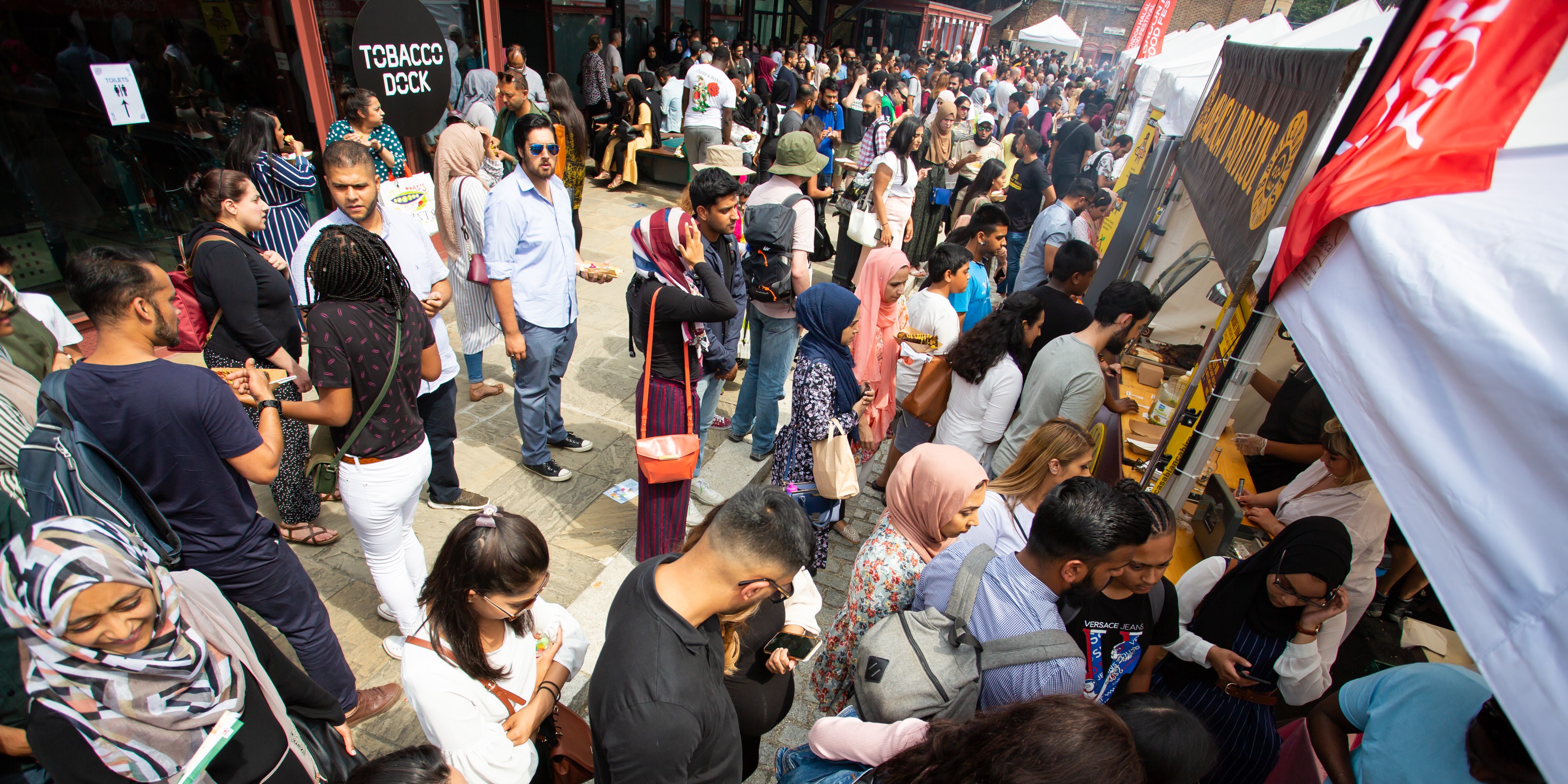London Halal Food Festival is returning in September with safety a top-of-mind priority
COVID cancelled it last year but the popular London Halal Food Festival is returning September 25 and 26, with safety at the top of the organiser’s mind.
The event is moving from Tobacco Dock, where it was held from 2016 to 2019, to Syon Park Walled Garden on the banks of the River Thames about 10 miles upstream from London.
“If you see this event as an economy, we need to make sure that the businesses do well,” event director Waleed Jahangir of organiser Algebra Consulting told Salaam Gateway.
While the overall event concept of featuring food and culinary skills by bringing on Muslim MasterChef winners is tried and tested, a well-thought-out safety plan is a must this year.
“We put our audience and customers’ safety first and developed a robust event and risk assessment around that event,” Jahangir said.
He quibbled about the lack of government guidance. Still, he emphasised that the event industry, England’s tourism board “Visit Britain”, and related government associations have worked together to develop pre-emptive post-pandemic event guidelines.
“We’re good to go,” the event expert said, referring to a certification process his company went through. The certification signals that a business follows “government and industry COVID-19 guidelines and has a process in place to maintain cleanliness and aid social distancing”.
Spread across four acres of land, Syon Park Walled Garden provides plenty of space to put safety measures in place, including temperature checks at the entry point, the distribution of sanitisers throughout the venue, and extra hygiene controls.
“We're introducing private family dining tents,” Jahangir said. “These are slightly more secluded and give a little bit more safety reassurance.”
To avoid queues of people ordering food at the stalls, the organiser invested in developing a bespoke software that will place all exhibitors on the event online ordering platform. This allows people to pre-order food, pay using their phones and pick up at the stall once they receive a ready notification.
“That will make a difference,” Jahangir said, referring to crowd and distancing controls. “It's an investment for us, for our clients and our other events as well.”
Jahangir hinted the location move was motivated by various reasons. Catering for long-term growth is one, although ticketing numbers are deliberately kept lower this year.
“We're going to sell probably around 15,000,” Jahangir said. In the past, around 18,000 to 20,000 foodies purchased tickets for the annual event.
Tickets will be split into morning and afternoon sessions to support crowd control, and the organiser is in a position to refund everyone should the event not go on.
Blessed with a stallholder return ratio of 60 to 70%, the London Halal Food Festival only takes on 8 to 10% of new applications on average,. Candidates must offer a food type in demand, have a brand and experience handling crowds.
“Brand is very important to us now,” Jahangir said. “Because we can only do as much to promote, but if stallholders don’t have a backend brand, then it doesn't work.”
The organisers have selected ten Halal Heroes—halal food bloggers, celebrities, and influencers–who will work exclusively over the weekend to promote the show and the exhibitors.
“Halal food bloggers are becoming more and more prevalent in the industry,” the event director said.
COVID-ERA HALAL BUSINESSES
Reflecting on the pandemic’s impact on halal food businesses, Jahangir pointed out that these are very traditional companies, often run by first and second-generation entrepreneurs with a niche product approach.
“In essence, COVID has been a catalyst for traditional businesses to learn and engage in online e-commerce,” Jahangir said. “With the platforms available nowadays, you can be an online shop within 24 hours.”
The businesses that took the digital plunge now reach customers they never imagined before, and they’ve made extra revenue, added the event director.
© SalaamGateway.com 2021 All Rights Reserved

